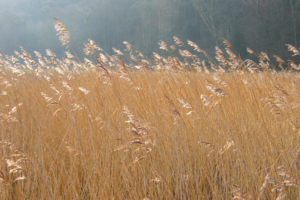| Source (Hebrew) | Translation (English) |
|---|---|
עָלֵינוּ לְשַׁבֵּחַ לַאֲדוֹן הַכֹּל, לָתֵת גְּדֻלָּה לְיוֹצֵר בְּרֵאשִׁית, שֶׁלֹּא עָשָׂנוּ כְּגוֹיֵי הָאֲרָצוֹת, וְלֹא שָׂמָנוּ כְּמִשְׁפְּחוֹת הָאֲדָמָה. שֶׁלֹּא שָׂם חֶלְקֵנוּ כָּהֶם, וְגוֹרָלֵנוּ כְּכָל הֲמוֹנָם, |
We rise to praise You, Source of All, Your generous work, As Creator of All. You made us One With all of Life. You inspired us to share with all mankind. You linked our fate With all that lives. And made our portion With all in the world. |
שֶׁהֵם מִשְׁתַּחֲוִים לְהֶבֶל וָרִיק, (ישעיה ל:ז חלק) וּמִתְפַּלְּלִים אֶל אֵל לֹא יוֹשִׁיעַ. (ישעיה מה:כ חלק) |
Some of us like to worship You, As emptiness and void.[1] after Isaiah 30:7 and Isaiah 45:20 |
וַאֲנַחְנוּ כּוֹרְעִים וּמִשְׁתַּחֲוִים וּמוֹדִים, לִפְנֵי מֶלֶךְ מַלְכֵי הַמְּלָכִים הַקָּדוֹשׁ בָּרוּךְ הוּא, |
Some of us want to worship You, As King of Kings. We all consider You sacred and blessed. |
שֶׁהוּא נוֹטֶה שָׁמַיִם וְיֹסֵד אָרֶץ, וּמוֹשַׁב יְקָרוֹ בַּשָּׁמַיִם מִמַּעַל, וּשְׁכִינַת עֻזּוֹ בְּגָבְהֵי מְרוֹמִים. |
We stand amazed At the vault of the sky, At the firmness of Earth. And deem You, Enthroned in the Highest realms, Dwelling also in and with us. |
הוּא אֱלֹהֵינוּ אֵין עוֹד, אֱמֶת מַלְכֵּנוּ, אֶפֶס זוּלָתוֹ. כַּכָּתוּב בְּתוֹרָתוֹ: וְיָדַעְתָּ הַיּוֹם וַהֲשֵׁבֹתָ אֶל לְבָבֶךָ, כִּי יְהֹוָה הוּא הָאֱלֹהִים בַּשָּׁמַיִם מִמַּעַל וְעַל הָאָרֶץ מִתָּחַת אֵין עוֹד: (דברים ד:לט) |
You are our God. There is nothing else. Your Truth is supreme. Existence is nothing but You. |
כַּכָּתוּב בְּתוֹרָתֶךָ: יְהֹוָה יִמְלֹךְ לְעֹלָם וָעֶד: (שמות טו:יח) וְנֶאֱמַר: וְהָיָה יְהֹוָה לְמֶלֶךְ עַל כָּל הָאָרֶץ בַּיּוֹם הַהוּא יִהְיֶה יְהֹוָה אֶחָד וּשְׁמוֹ אֶחָד: (זכריה יד:ט) |
Rabbi Zalman Schachter-Shalomi, z”l, included his translation of the prayer Aleinu in his Siddur Tehillat Hashem Yidaber Pi (2009). To the best of my ability, I have set his translation side-by-side with the phrases comprising the prayer. –Aharon N. Varady
Concerning the attribution of Aleinu, Seth Winberg writes, “Most scholars…credit Rav, a third century Babylonian sage, with writing Aleinu. Certain phrases which occur in the prayer, such as “the supreme Sovereign of sovereigns” and “the Holy One, blessed be” are rabbinic phrases….Scholars also cite the original context of Aleinu as evidence for Rav’s authorship of the prayer. Aleinu got its start in Jewish liturgy as the opening of the malkhuyot section of the Rosh Hashanah musaf liturgy, in which Jews declare God to be their Sovereign. This entire section of liturgy is attributed to Rav, including Aleinu.”
Source



“עָלֵינוּ לְשַׁבֵּחַ | Aleinu, interpretive translation by Rabbi Zalman Schachter-Shalomi” is shared through the Open Siddur Project with a Creative Commons Attribution-ShareAlike 4.0 International copyleft license.





Leave a Reply